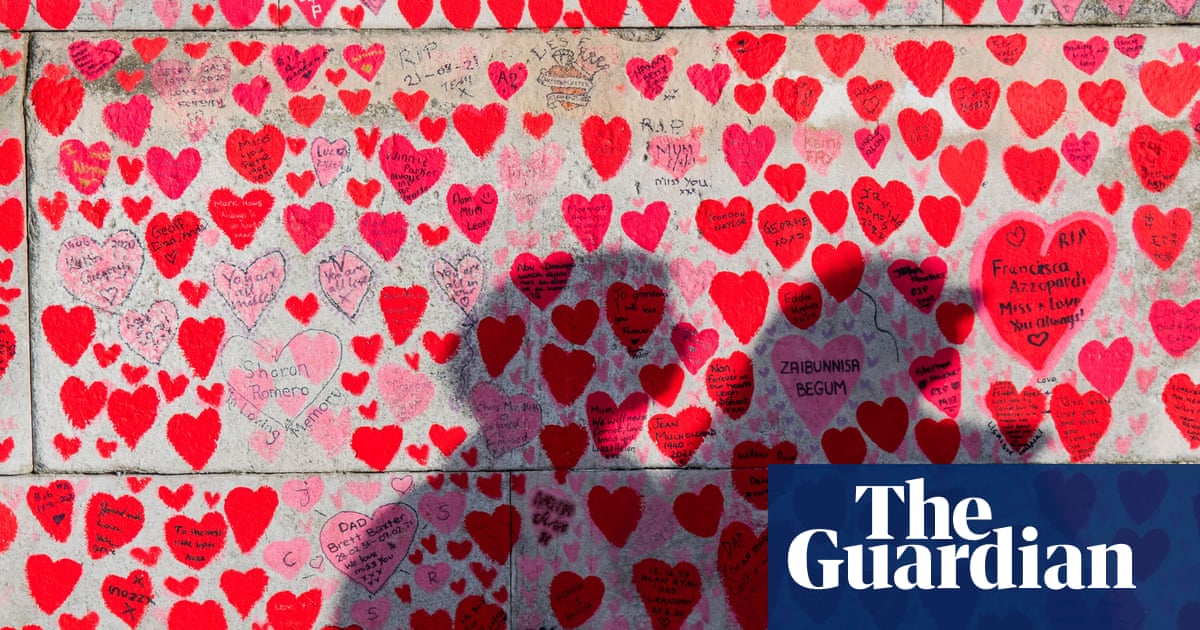
People bereaved during the first two waves of the Covid pandemic are three times more likely to have prolonged grief disorder (PGD), which can leave them lonely and in intense emotional pain, research from Cardiff and Bristol universities has revealed.
The disorder, also known as complicated grief, can result in persistent longing for the deceased, intense emotional pain including guilt and denial, and trouble engaging with friends and planning for the future, all of which goes on for longer than six months.
Normally the condition affects one in 10 people, but three in 10 in a sample of those bereaved from March 2020 to January 2021 were found to have the disorder more than two years after their loss. Treatment involves specialist psychological intervention.
If the results were reflected across the UK, it would means several hundred thousand people were or had been suffering from PGD, at a time when campaigners have complained of a postcode lottery of bereavement support. Campaigners for the bereaved are calling for ministers to fund specialised bereavement support, and for wider education about the problem.
PGD is known to be triggered by traumatic deaths, social isolation and being cut off from the person who died – characteristics of many of the pandemic deaths that occurred during lockdowns and when visiting hospitals and care homes was highly restricted. The research is believed to be the first of its kind.
“I wouldn’t say I am relishing life; I am existing,” said Susie Flintham, whose father died from Covid in March 2020. She saw him in hospital but was wearing so much PPE that she doesn’t know if he recognised her. She and her partner were the only people at his funeral. “[More than three years later] I talk myself out of things, I go out a lot less … I have become quite distant from people.”
The study of 711 bereaved people found that social isolation and loneliness in early bereavement, and lack of social support over time, strongly contributed to higher levels of prolonged grief symptoms. Feeling well-supported by healthcare professionals after a death was associated with reduced levels of prolonged grief symptoms.
There was no difference in levels of the disorder between those who lost people to Covid during the pandemic or to other causes, when other factors were controlled for. For example, the study described “distress and anger” among relatives whose loved ones died of a terminal illness without the expected levels of care because NHS resources were channelled into fighting the virus.
“Our research not only helps us to understand how mass bereavement events can impact grieving and mental health, but also has important implications for bereavement policy, provision and practice,” said Dr Emily Harrop, a research fellow at the Marie Curie Research Centre at Cardiff University school of medicine, who led the study with Dr Lucy Selman, an associate professor at the palliative and end-of-life care research group at the University of Bristol. “This new understanding will be crucial in preparing for future pandemics and mass bereavement events.”
More than half of the participants felt they had little or no support from healthcare professionals.
“We need specialised bereavement support,” said Flintham, who is part of the Covid-19 Bereaved Families for Justice group. “Some people have never accessed any at all. We need support from people who know how to deal with this unique kind of bereavement.”












